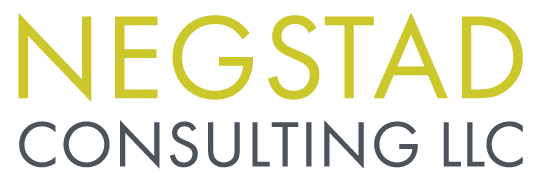5 Minutes on the Self-Awareness of Emotional Intelligence
Think of a leader who you really admire.
I would be willing to bet you a cup of coffee that person was emotionally smart.
When face-to-face with a good leader, we just know it in our gut.
That leader is at ease with themselves and others. They have the ability to cultivate strong relationships and yet not be a pushover.
The secret to strong leadership is emotional intelligence.
And it starts with self-awareness - the ability to recognize your own emotions and how they affect your thoughts and behaviors.
That emotionally smart leader?
They know themselves, and stay open to change and new insights. They know cultivating emotional intelligence is a lifelong journey.
Here are two basic steps you can work on to increase your emotional intelligence:
1. Know yourself better
2. Be easy on yourself
Ready to get started?
1. Know yourself better
Our brains are wired for survival.
When we experience a strong emotion - anger, fear, anxiety, shame - the brain's flight, fight, freeze, or appease response takes over.
In other words, the prefrontal cortex (where our higher-level thinking happens) acquiesces to the amygdala (the reptilian part of the brain wired for survival).
Most of the time the strong reactions of our amygdala are large and out of sync with the situation. Hence we talk about overreacting or being activated.
When we are ruled by our amygdala, we are not be able to think clearly. It isn’t a good time to have important conversations or to take action.
But if we can cultivate awareness that this is happening, we can pause. In that pause, we find our way to responding rather than reacting directly out of the emotion.
Let’s be clear this isn’t about avoiding or judging emotions of any sort. It’s not about some emotions being wrong or avoiding emotional reactions. None of this is black and white.
It’s about becoming aware of your emotions, especially when you are activated.
Here are six ways to increase awareness of when you are emotionally activated:
Know what types of things most affect you (attitudes; words; nonverbal cues; sensitive issues; negative self-talk).
Learn how it feels in your body when you are activated.
Enlist a trusted friend or colleague to provide a listening (nonjudgmental) ear.
Learn to describe your feelings accurately (see this PDF for a comprehensive list of feelings).
Invite honest and loving feedback when you are ready to hear it.
Know your strengths and your limits.
2. Be easy on yourself
A wise person in my life recently reminded me to meet myself where I’m at.
I was being hard on myself for not knowing more and doing better.
But that reaction wasn’t going to get me anywhere.
Pema Chödrön talks about it as bringing “warmth” to those hard spots and moments.
As you do the work of understanding your own emotions and emotional reactions, be easy on yourself. This isn’t the work of a moment, this is the work of a lifetime.
Developing self-awareness can be hard work.
It can be painful to sit with hard emotions. Or to realize we aren’t as far along as we’d like to be.
How can you find spaciousness around your emotions and where you’re at?
Here are 5 ways to get started:
Take a pause, notice your breath, notice your feet touching the ground.
Be gentle with yourself about those issues where you might be sensitive.
Keep a sense of humor with yourself.
Find time and space to feel what you are feeling. Notice where it is in your body and how it feels.
Make it a practice to check in with yourself about how you feel. How does it differ from how you want to feel?
Like I said, this is the work of a lifetime.
There is so much more to be said and to learn. So, I'll leave you with a quote from Pema Chödrön and some additional resources to further your learning.
I’m curious to hear from you.
What has helped you know yourself better? Where could you use more practice being easy on yourself in the process?
Hit reply and let me know. I’d love to hear from you.
“When we are able to hold the rawness of vulnerability in our hearts, we can use that energy to create something that touches and communicates with other people. If we close down our vulnerable feelings, if we always mask ourselves or try to make our vulnerability go away, out of that space come addictions of all kinds, aggression, anger, striking out against others. If we can go beyond blame and other escapes and just feel the bleeding raw vulnerability, we can enter a space where the best parts of us can come out.”
Pema Chödrön, Welcoming the Unwelcome
Additional Resources on Emotional Intelligence:
1. Resources from Pema Chödrön
Welcoming the Unwelcome (Book)
Making Friends with your Mind (Series of Talks) (I found this through the library).
2. Tara Brach RAIN Meditation
https://www.youtube.com/watch?v=wm1t5FyK5Ek
https://www.youtube.com/watch?v=hL6hEC4w6Ng
3. Search Inside Yourself: The Unexpected Path to Achieving Success, Happiness (and World Peace), by Chade-Meng Tan

